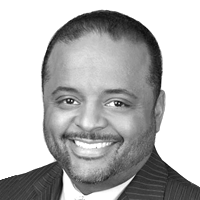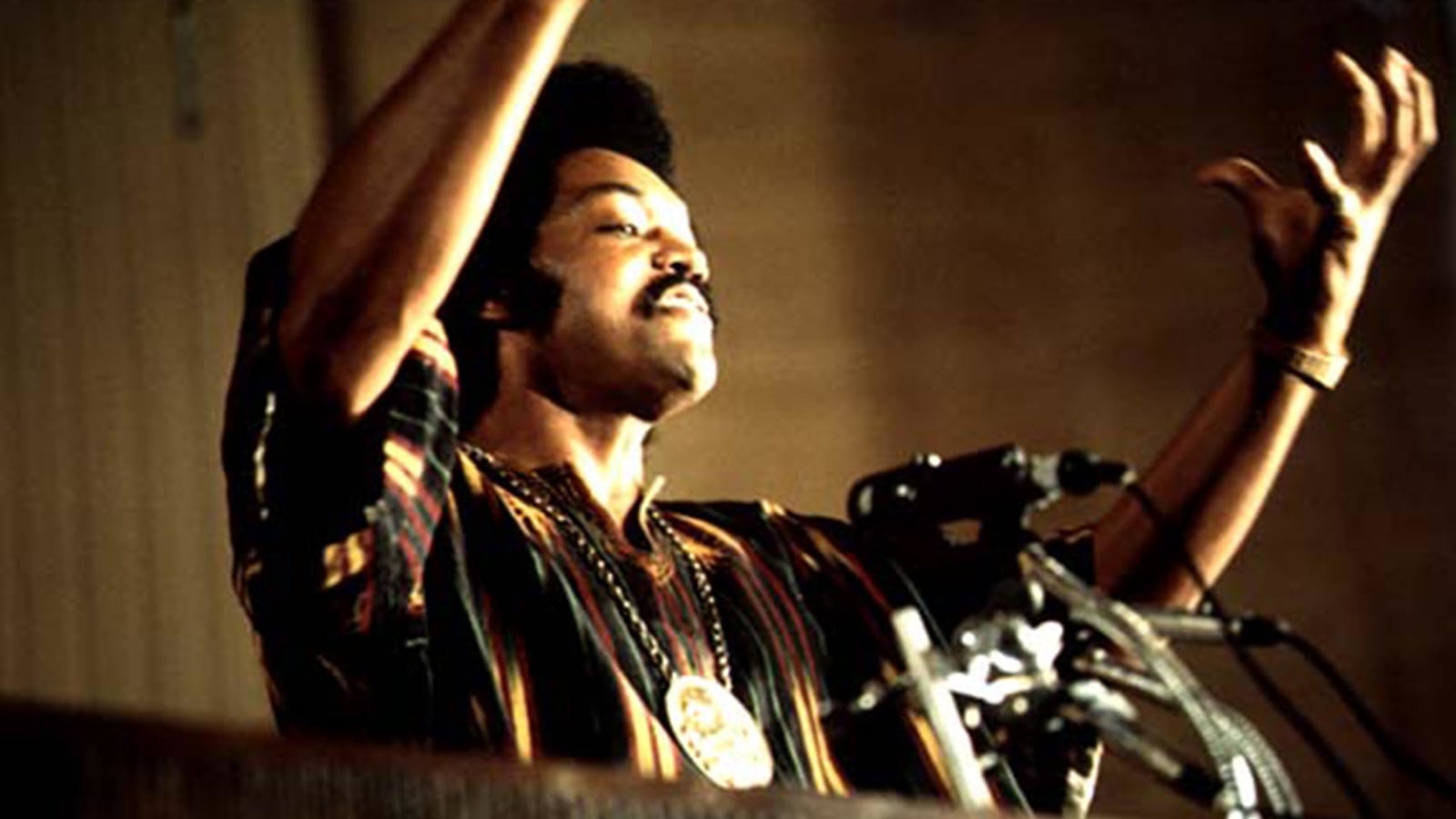When Dr. William Barber, head of the North Carolina State Conference of the NAACP, attended a recent July 4th parade in the Tar Heel State, he experienced something that almost blew him away.
For the past 64 weeks, Barber has led a civil disobedience campaign called “Moral Monday,” which has highlighted efforts by Republicans in the state to enact voter suppression laws, refusals to expand Medicaid, and slash education and other areas of the state budget.
But what initially began as a mostly black effort has expanded to include whites, liberals, conservatives, police officers, and teachers, a movement Barber has called “fusion politics.”
So what happened at the parade, Barber told me at the recent NAACP convention in Las Vegas, what that a white man carrying a Confederate flag approached Barber with tears in his eyes and said: “Thank you for fighting for our hospital.”
“Now I haven’t got him to put down that flag yet, but we’re going to work on that because the reality is the first person that died when that hospital closed because they did not get Medicaid [expansion in North Carolina] was a 38-year-old white woman,” Barber said. “And I’ve been down there embracing them and showing them that the tea party sells you this ‘We are going to hurt them,’”—that is, penalize minorities and others whom tea partiers perceive to be too dependent on government—“but if you get underneath that old crazy rhetoric and the myth of extremism is that it just doesn’t hurt them—black people, brown people—it hurts everybody.”
The success of Moral Monday has been stunning in that it has shown others that when you toss out the political party labels, the stupid liberal vs. conservative and Democrat vs. Republican battles, and instead focus on the issues, people from divergent backgrounds will realize that they are in the same position: fighting to survive.
In many ways Moral Monday is the culmination of the Rainbow Coalition envisioned by the Rev. Jesse Jackson Sr. when he ran for president of the United States 30 years ago this year.
Jackson was viewed by the national media as a black rabble-rouser who couldn’t attract white support even if he paid them. But while they ignored his campaign stops, Jackson was speaking to the disenfranchised, the disengaged, and the economically depressed, whether they were farmers in Iowa, coal miners in West Virginia, or rural whites in Alabama and Mississippi. That coalition included blacks, whites, Native Americans, Arab Americans, gays and lesbians, and others.
While Vice President Walter Mondale ran a typical campaign, Jackson was talking about failing schools, income inequality, the widening gap between the rich and poor, the need for a national health care plan, and gay and lesbian rights. He attacked the racist regime behind apartheid in South Africa; supported the creation of a Palestinian state; and wanted to change the war on drugs to focus on treatment instead of imprisonment.
What Jackson understood then—and now—is that it’s one thing for an African American to raise these issues, but in order to move the needle, it required getting whites to see that they were often voting against their best interests out of party loyalty to the GOP.
Barber, who says he has often talked with Jackson during the last year as he has led Moral Monday, says just like during the 1984 presidential campaign, North Carolina’s newspapers, media pundits, and politicians dismissed his movement as a waste of time.
Not today.
“The governor [Pat McCrory] was at 50 percent in the polls, now he’s at 30. The legislature was at 40 percent and now they are under 18. Voter registration is going up. People are engaged. This is going to be an election that is going to fool people because we have a movement that is connected to the agenda.”
And that is the key: the agenda. Not party. Not labels. The issues, and only the issues.
“We have Republicans who are standing up against these tea party extremists. We’ve had a teacher from there whose job was going to be affected because of these cuts stand up on the Moral Monday stage,” Barber said. “We’ve got a Republican mayor from Bellhaven [Adam O’Neal] whose hospital was just closed because of the denial of Medicaid, who is walking 273 miles to D.C. I’m walking on the 28th. We’re going to have Moral Monday there about Medicaid…now we don’t agree on some other things, but on voting rights and Medicaid, he’s with us.”
Barber said what Moral Monday is proving to the NAACP and other groups fighting for equality is that movements must be bottom up and not top down: “If we’re going to fuss, we can just be us. But if we’re going to win, we’ve got to diversify and have a fusion coalition.”
I have always hated the boxes. While at CNN, I fought constantly with our political team in Washington, D.C., and across the network who wanted to place me in the Democratic box or the blue box. I despised it because on some issues, I might be called a conservative, and others a progressive. The problem with using these partisan labels is that doing so doesn’t lead to a real discussion of the issues, but instead, defending your turf.
“If you have a moral narrative, say economics are moral, budgets are moral, education is moral, healthcare, and then you talk about the impact on real people, and then you disaggregate the impact on communities, people see their common identity,” Barber explained. “That’s what Dr. King talked about; we’re inextricably bound together. If you use the other language, the moment you say liberal you’ve pushed away all of the conservatives. If you say Democrat you’ve pushed away all of the Republicans. But if you say ‘Let’s talk about a moral agenda,’ you can at least have a conversation.”
“We’ve got 61 percent of North Carolinians who say, ‘Yeah, I would raise my taxes to give teachers a job’; 58 percent say, ‘Yeah, I want Medicaid expansion,’ because they recognize that it’s not just hurting black people. It’s hurting rural North Carolina. White people and black people are dying.”
I’ve long maintained that President Obama should stop going to swing states like Ohio and Virginia, and instead, take the fight to the heart of red states like Mississippi and Alabama, and have folks who may be Republican but who want to see health care expanded there stand with him. Barber echoed my sentiments: “I’d love to see the president come to Bellhaven with that Republican mayor. I’ve said to Senator Hagan, Senator Burr, and Representative Butterfield, ‘Go down there and meet with this man and see what’s going to happen all across this nation if we don’t expand [Medicaid].’”
Fusion politics, folks. This, and only this, is the key to driving real, substantive change in America. It’s time to drop the party labels. They are killing any chance of truly changing the United States of America.




